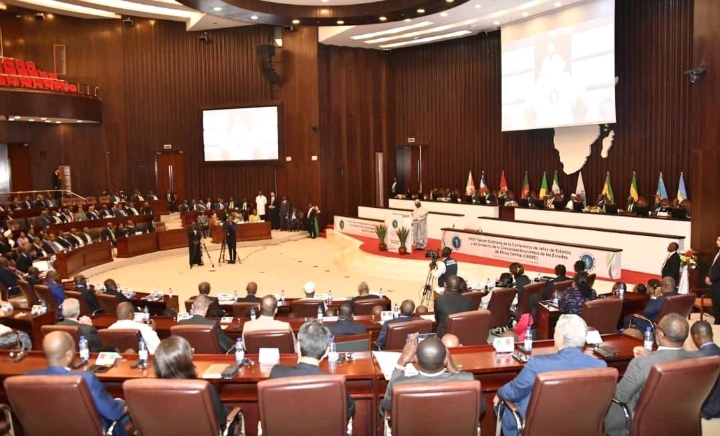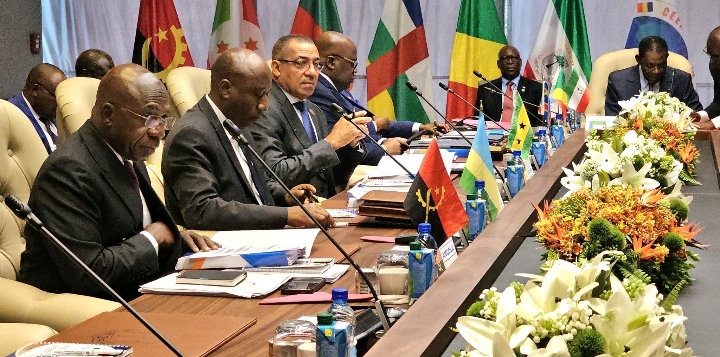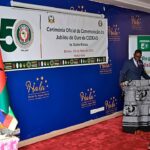Rwanda Withdraws from Central Africa Regional Bloc Amid DRC Tensions — Equatorial Guinea Steps In as Chair.
By Raymond Enoch
In a significant diplomatic shift, Rwanda has announced its withdrawal from the Economic Community of Central African States (ECCAS) following a contentious dispute over its right to assume the bloc’s rotating chairmanship.
The move comes amid escalating tensions between Rwanda and the Democratic Republic of the Congo (DRC) concerning the ongoing conflict in eastern DRC.
Rwanda had been slated to take up the chairmanship during a recent ECCAS summit that took place at Equatorial Guinea. However, the summit’s leaders decided to delay Rwanda’s chairmanship, citing its alleged involvement in supporting the M23 rebel group in eastern DRC. The DRC government has accused Rwanda of backing the rebels, a claim that Rwanda denies. In response to the decision, Rwanda announced its departure from ECCAS, stating that the organization’s actions contradicted its founding principles and objectives.

As a result of Rwanda’s withdrawal, Equatorial Guinea has assumed the chairmanship of ECCAS. The summit’s leaders acknowledged the aggression against the DRC and called for Rwanda to withdraw its troops from Congolese soil. Equatorial Guinea’s President, Teodoro Obiang Nguema Mbasogo, emphasized the importance of regional unity and stability, urging all member states to adhere to ECCAS’s principles of non-interference and respect for sovereignty.
The diplomatic rift underscores the complex geopolitical dynamics in Central Africa, where regional organizations like ECCAS play a crucial role in mediating conflicts and promoting cooperation. The situation remains fluid, with international stakeholders closely monitoring developments and advocating for dialogue and peaceful resolution.

This unfolding scenario highlights the delicate balance of power and influence within regional organizations and the broader implications for peace and stability in Central Africa.








